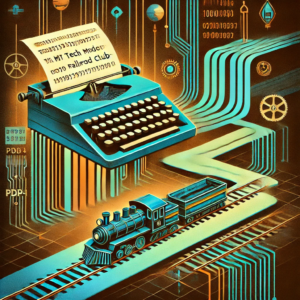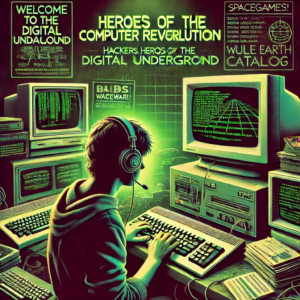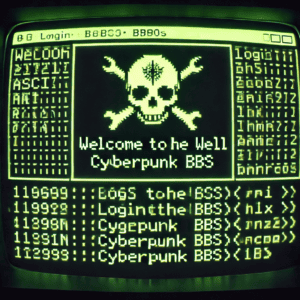Introduction: The Birth of Hacker Culture
Steven Levy’s Hackers: The Heroes of the Computer Revolution is a foundational text in the history of computing, chronicling the evolution of hacker culture from the 1950s to the 1980s. First published in 1984, Levy’s work provides an insider’s look at the pioneers who shaped the modern world of computing, from MIT’s early computer enthusiaststo the rise of the personal computing era.
For those interested in tech history, countercultural movements, and the ethos of open-source innovation, Hackersoffers a captivating and well-researched narrative.

What makes this book unique:
- Chronological Storytelling: Levy takes readers through three generations of hackers—early mainframe tinkerers, the rise of personal computing, and the advent of gaming hackers.
- The Hacker Ethic: This book formalized the idea of the “hacker ethic,” a philosophy that values access to information, decentralization, and meritocracy.
- Profiles of Innovators: The book features now-legendary figures like Richard Stallman, Steve Wozniak, and Bill Gates before they became household names.
- A Cultural Shift: Hackers showcases how computing went from an academic pursuit to a multi-billion-dollar industry shaped by enthusiasts and rebels.
If you want to understand how modern software development, open-source culture, and tech innovation began, this is a must-read. (Affiliate link here: Buy on Amazon)
Book Details at a Glance
| Feature | Details |
|---|---|
| Title | Hackers: The Heroes of the Computer Revolution |
| Author | Steven Levy |
| Publication Year | 1984 |
| Genre | Technology History, Non-Fiction |
| Length | ~464 pages |
| Main Themes | Hacker Ethic, Open Access, Tech Evolution |
| Key Concept | The cultural and ethical foundations of hacking |
| Relevance Today | Open-source movement, Cybersecurity, AI History |
| Readability | Engaging, well-researched, accessible |
| Who Should Read? | Tech enthusiasts, coders, history buffs |
Breaking Down the Book: Key Themes & Insights
Levy’s book is structured into three main sections, each representing a key phase in the evolution of hacker culture:
1. The Early Hackers (1950s-60s) – The MIT Model Railroad Club & AI Labs

The earliest hackers emerged at MIT, where students experimented with massive mainframe computers, seeking to push boundaries not for profit, but for the sheer joy of discovery. This era established the foundation of hacker ethics—information should be free, and knowledge should be shared.
2. Hardware Revolution (1970s) – The Birth of the Personal Computer
The advent of affordable computing led to a new wave of hackers, including Steve Wozniak, who co-founded Apple, and the Homebrew Computer Club. This era was pivotal in turning computing into an industry, with competing ideas about whether software should be free or proprietary (highlighted by Bill Gates’ famous “Open Letter to Hobbyists”).

3. Gaming & Cyberpunk (1980s) – The Commercialization of Hacking
As computing became mainstream, a new kind of hacker emerged—game developers and digital explorers who thrived in an increasingly corporate world. Figures like Richard Garriott (creator of Ultima) took hacker ingenuity into game design, blending innovation with commercial success.

(Want to read more? Get your copy here: Amazon Affiliate Link)
Why This Book Still Matters Today
The hacker mindset Levy describes is alive today in open-source movements, cybersecurity, and decentralized tech projects like blockchain and AI development. Understanding this history provides valuable context for anyone working in software development, ethical hacking, or tech entrepreneurship.
With Hackers, Levy doesn’t just document history—he captures the spirit of innovation and rebellion that continues to shape technology.

Final Thoughts & Where to Buy
⭐ Rating: 4.8/5 – A compelling history of computing’s unsung heroes, filled with fascinating stories and insights into the foundations of hacker culture.
Whether you’re a coder, historian, or just someone fascinated by the digital revolution, this book is essential reading.
📖 Buy Hackers: The Heroes of the Computer Revolution on Amazon (Affiliate Link)
This post contains affiliate links. If you purchase through these links, I may earn a small commission at no extra cost to you. Thank you for supporting this blog!